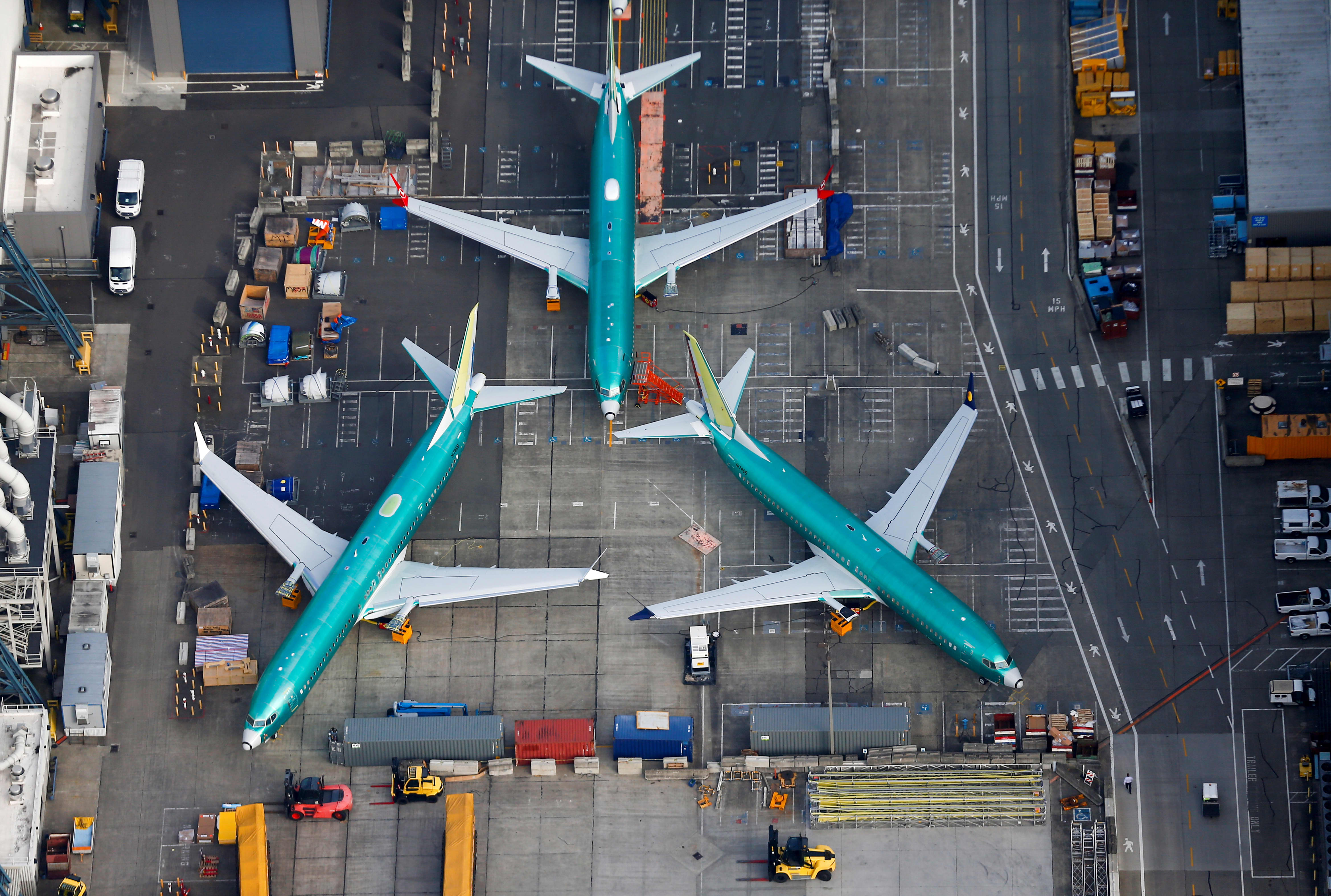Lawmakers slam FAA over handling of Boeing 737 Max

An aerial photo shows Boeing 737 MAX airplanes parked on the tarmac at the Boeing Factory in Renton, Washington, U.S. March 21, 2019.
Lindsey Wasson | Reuters
Lawmakers on Wednesday criticized the Federal Aviation Administration's approval of the now-grounded Boeing 737 Max and how the agency handled the aftermath of a fatal crash of one of the planes last year.
The plane has been grounded worldwide since mid-March after the crash of an Ethiopian Airlines 737 Max less than five months the first Max crash, a Lion Air flight that went down shortly after takeoff from Jakarta in October. The two crashes killed all 346 people aboard.
"We expect you to be the entity that stands up and says this aircraft is completely safe to fly," Sen. Jack Reed, D-R.I., said at a hearing before a panel of the Senate Appropriations Committee. "That does not seem to be the case in this situation."
FAA officials defended the agency's long-standing process of delegating certification reviews to manufacturers like Boeing as well as its decision to issue a warning to pilots after the first crash as Boeing worked on a software fix but admitted that they could make improvements.
"We have been fully knowledgeable in dealing with the development of that plane," said Carl Burleson, acting deputy FAA administrator, regarding the agency's inclusion of Boeing in the process. "I will say it doesn't mean that it's perfect."
Crash investigators implicated a piece of flight-control software that repeatedly pushed down the nose of the two planes. Boeing last week said it is testing that software fix for the system but it hasn't yet submitted it to the FAA for review. Pilots said they were only told about the system after the first crash.
"If there needs to be a different balance in delegation ... we're ready to take those recommendations," said Burleson. "Airplanes are not going to be less computer-centric going forward."
Ali Bahrami, who heads safety at the FAA, said he stood by the decision to issue a warning to pilots about the software after the first crash, when he was asked about a Wall Street Journal report published Wednesday that said an agency analysis found it "didn't take much" for a misfire like the one that is believed to have caused the Lion Air disaster.
"From a safety perspective, we felt strongly that what we did was adequate, and that was ... based on the review of the data we have obtained from our operators and Canadian operators. We thought that was sufficient," Bahrami said. "Now, knowing what we know today and maybe we will have to take a revisit of that based on these reviews."
Boeing said that it and the FAA after the Lion Air crash took "the appropriate actions and are fully consistent with the FAA's analysis and established process. Boeing also agreed to the FAA's timeline for implementing the software update."
The FAA and Boeing are facing multiple investigations into the certification of the plane, whose grounding is in its fifth month. The prolonged grounding has dented airline profits and prompted carriers to cancel thousands of flights, some into next year.
Boeing and the FAA are now scrambling to restore trust in the planes, which Boeing expects will be flying by early in the fourth quarter, while federal officials say they have no timeline to return the planes to service.
"We have relied on the industry more than we should be rely on the industry to do the job that we should do to make sure the American public is safe," said Sen. Joe Manchin, D-W.Va. "I would say for the 737 Max to get back in the air every, Boeing official should be flying that plane for one month to make sure that we have the confidence for a passenger to get back on that plane."
Read More
No comments